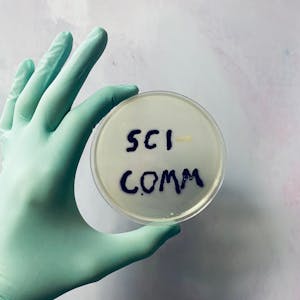Designing Effective Science Communication
Although many would prefer to leave science in the past and no longer engage with it once completing compulsory science classes in school, the reality is that engaging with science is an integral part of our daily lives. Moreover, for the safety and wellness of human society, it is necessary to engage with scientific information. We are faced with the necessity of examining scientific evidence on topics ranging from conservation to public health and make decisions that impact not only our families but those around us. However, in spite of decades of science education reform and dedicated efforts to improving science literacy, many members of the general public lack the confidence, skills, or interest in engaging with scientific issues, instead choosing to align their scientific decisions with non-scientific stakeholders, such as political or pop culture figures. These problems are ongoing and destructive. How do we communicate science more effectively with the general public? With other scientists? This course is designed for scientists, science educators, and science communicators who are interested in re-thinking how we communicate science to diverse audiences, particularly to the general public. Topics include evidence-based considerations of human learning as well as effective communication through a variety of modalities, including oral presentations, written forms of communication, technology, and artistic media. The objective of this course is to equip learners with the skills needed to design and implement effective methods of science communication. Learners will be able to identify key principles of human learning that undergird science communication, describe pitfalls in “popular” avenues for science outreach, and apply best practices to science communication in a variety of media.
Describe principles of human learning that are important to consider when designing science outreach activities.
Compare and contrast modalities for science communication/outreach.
Identify common pitfalls in science communication/outreach.
Design a science communication/outreach activity based on principles learned in this course.
Syllabus
Syllabus - What you will learn from this course
Week 1
Connecting the Science of Learning to Science Communication
Week 2
Speaking of Science: Oral Presentation
Week 3
Writing Science: Written Communication
Week 4
Decoding Science: Technology Based Communication
Week 5
Creating Science: Artistic Forms of Communication
FAQ
When will I have access to the lectures and assignments?
Access to lectures and assignments depends on your type of enrollment. If you take a course in audit mode, you will be able to see most course materials for free. To access graded assignments and to earn a Certificate, you will need to purchase the Certificate experience, during or after your audit. If you don't see the audit option:
The course may not offer an audit option. You can try a Free Trial instead, or apply for Financial Aid.
The course may offer 'Full Course, No Certificate' instead. This option lets you see all course materials, submit required assessments, and get a final grade. This also means that you will not be able to purchase a Certificate experience.
What will I get if I purchase the Certificate?
When you purchase a Certificate you get access to all course materials, including graded assignments. Upon completing the course, your electronic Certificate will be added to your Accomplishments page - from there, you can print your Certificate or add it to your LinkedIn profile. If you only want to read and view the course content, you can audit the course for free.
Is financial aid available?
Yes. In select learning programs, you can apply for financial aid or a scholarship if you can’t afford the enrollment fee. If fin aid or scholarship is available for your learning program selection, you’ll find a link to apply on the description page.
Reviews
I definitely recommend it if you want to do outreach, and to realize that there are several options to communicate science, and it doesn't need to be boring!
This course covers the necessary topics and activities on scicom. It also helped me change my mindset on how to deliver science to my desired audience.
